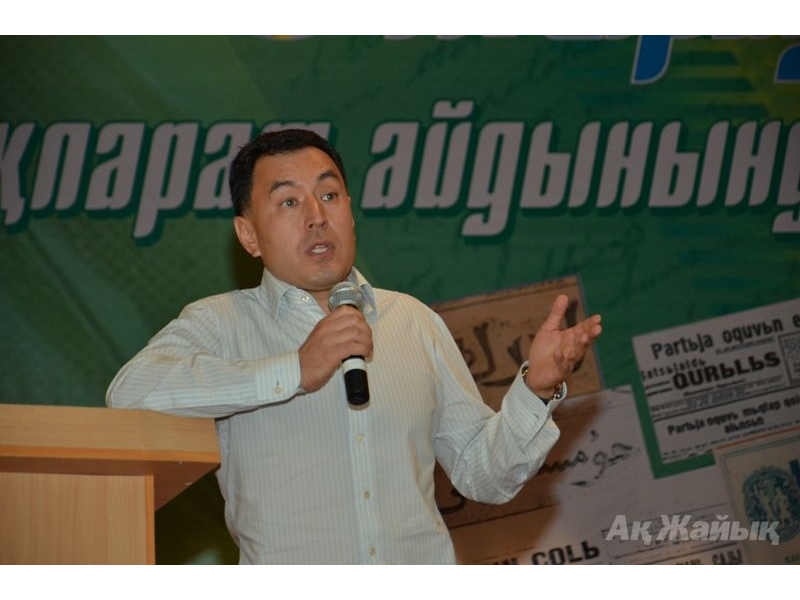Media
Call of the pioneer

There are very few like me - maybe 5% of the total population. Some of them reside in psychiatric hospitals, the others try and change the world - laughs Serikbay Bisekeev.
This is how he perceives business - as an opportunity to change the world within and around himself. This explains his unconventional solutions, which are usually met with success.
THE ENTREPRENEURIAL GENE
In the 90s he studied in St. Petersburg and, like many students, dabbled here and there, shuttle trading, buying and reselling. He even managed to create his own business, selling GSM mobile phones. While in Finland on a trip to buy the devices, he observed that unlike in Russia where only the wealthy bought mobiles, cellular services were used there by ordinary members of the public. He realized that before long, large mobile operators would enter the market and swallow it in no time.
"I sold the company, and thought long and hard about what to do. In the lawless Petersburg of that time, a business had to be the kind that could not be taken away. I realized that the best investment is an investment in one's own mind, and the best business is one that nobody else is doing yet," says Serikbay.
Serikbay imparts all of this during his lectures, which are currently being delivered throughout his homeland, Kazakhstan. On September 10th, he met the students of Atyrau's Dosmukhamedov University. Given the chance, he would include the subject "Basics of Business" in the curricula of every university without exception, since anyone, whether dentist or agronomist, can set up a business - providing, of course, that he has the "entrepreneurial gene". He uses this term extensively in his speech. A man without the "entrepreneurial gene" in his blood is just a performer who shouldn't meddle in business matters, since he'll just get burned, Serikbay asserts. Success lies not in the amount of venture capital, rich parents or 'friends in the right places'; any regular small-town guy in a foreign country can, even without any support, become top dog in his field. The secret lies in performance, results-orientation, concentration and patience. It is only worth starting a business when you're firmly confident in your abilities, but first of all to gain experience by working for others. And choose work appropriate for a graduate: dreams about your own business should not be based on the amount of your salary, but on the amount of knowledge that you can get.
While our state has set up various programmes to support businessmen who are just starting out, and everybody believes that this is the right approach, Bisekeev is sure that it only brings harm to young entrepreneurs:
- It is necessary to support those who have already achieved success in their own country and want to reach an international level - to promote domestic products on the world market. Otherwise state money will only corrupt the novice businessman, instilling the idea that he can squander a grant and then just ask for a new one.
What he says often sounds paradoxical:
- It makes no sense to freeze money up, buying an office that has no direct influence on how the enterprise develops; money has to be continually working, which is why I reinvest all profit back into the business. I rent office space, and housing for my family too.
SHARE YOUR WORK
It is foolish for the entrepreneurs of a country focused on extracting raw materials to try and outdo global manufacturers by producing similar tablets with the label "Made in Kazakhstan" stamped on them. It is better to start a business from scratch in an unfilled area. Apparently it's never easy to blaze the trail, and it's only worthwhile following to improve the rules, to offer more flexible terms and lower prices - and the trailblazer's already on the sidelines...
"But he does have an opportunity to create a market and assert the rules," Serikbay avers. "All those who come afterwards, like it or not, will be led by the standards set before them. The main thing is to be focused on a specific project, rather than trying to be everywhere at the same time."
Serikbay BISEKEEV was born in the town of Kamyshnoe in Kostanay region, a businessman who is currently living in Singapore. He is the President of "Arman" holding company, and among the finalists of the stage of the international contest "Entrepreneur of the Year 2012", receiving the award for «B2B». The competition has been held for almost 30 years by Ernst & Young, covering more than 50 countries including the US, UK, Germany, France, Norway, Sweden and Japan. It is called the "Oscar" of the business world.
The intention of finding a niche where ideas have more importance than financial capacity led him to the industrial communications sector. In the late 90s, enterprises were preoccupied with immediate concerns - upgrading their equipment, increasing production capacity, the search for expertise, etc. But these challenges gave rise to the need for creating an infrastructure within the enterprise. Choice was limited, with only Soviet analogue dispatch devices available on the market. At first, in the capacity of distributor, his company offered German equipment to its clientele (which included, in addition to oil and gas companies, enterprises that gradually appeared from other industrial spheres). Those clients, however, had specific requests for their own functional features. Consequently they came up with the idea of selling their own product, their own programmes.
"Don't try to cover all the production by yourself. Employ contractors, experts in their sphere, and outsource a portion of the work to them. The Chinese can make circuit boards and components – all the better, let them do it. Leave to yourself that which only you are able to do," – advises Serikbay to young businessmen.
An original product from LLC "Arman" is a piece of software, a program that acts as a switchboard to which other devices are connected. An operator can quickly alert all the employees of a single company, who may be large distances from one another, and connect them. This equipment is generally used in the industrial and transport sectors. "Arman" is also involved in the "Smart City" programme, providing equipment to improve safety in public places - squares, stadiums, railway stations, underground railways, etc. Incidentally, their work can also be evaluated by the population of Kazakhstan: the communications systems in the Almaty metropolitan railway and Astana airport were supplied by LLC "Arman". The company is also working with the oil and gas industry, the energy sector, and the Ministry of Defence.
Source is here.






